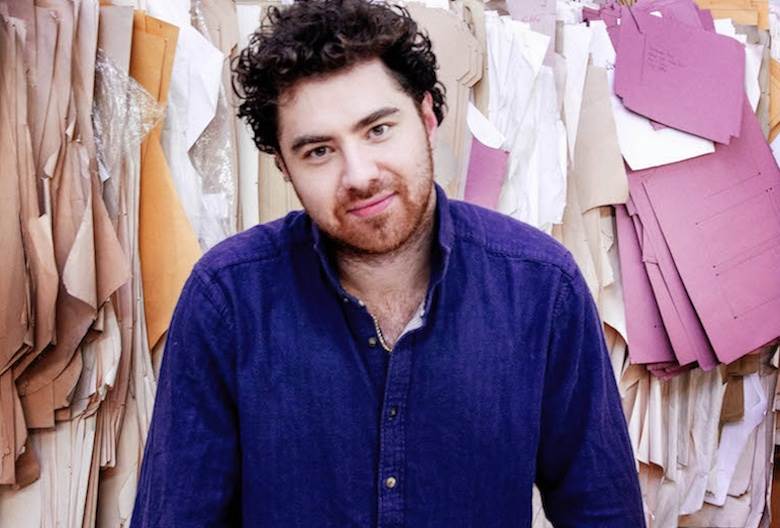New denim producer CBD’s ‘seal of sustainability’
27/01/2022

Founded by Alexander Levy (pictured), CBD is concerned exclusively with making jeans and ready-to-wear garments from fabrics “woven from the natural world”, resulting in organic European cotton denims blended with natural fibres such as hemp, linen and bamboo, as well as recycled denim. These fabrics are supplied by Evlox, which has a facility in Morocco, Mr Levy tells Inside Denim.
All fabrics, “where necessary", have been certified by bodies including the Global Organic Textile Standard, the Better Cotton Initiative, the Organic Content Standard and the Global Recycled Standard, he adds.
In the first instance, CBD is primarily focused on the UK market, due to pre-existing relationships, although it also plans to target the wider European, US and certain Asian markets within six months.
The business aims to position itself as a white-label supplier of “sustainable” denim garments for mid- to high-end clothing brands, as well as a go-to for retailers and creatives (especially musicians) looking to co-develop “high-impact lines of sustainable denim”, which would be labelled under the CBD Denim brand name. Having previously worked only with French brands, CBD’s chosen factory has 30 years’ experience in denim production.
Mr Levy further described how a new “state-of-the-art” manufacturing site has also just been completed, “designed to effectively deliver on sustainable protocols with up-to-date machinery and its own wet-processing facility”. This includes an effluent treatment plant, capable of draining and recycling water within CBD’s in-house laundry.
Altogether, the company has capacity to produce 50,000 unites of finished denim garments per month, thanks to the efforts of 450 employees - all of whom “operate to the highest standards of sustainability, traceability and environmental accountability” - working across four production lines.
Having lived in Morocco since 2016, CBD is Mr Levy’s first denim enterprise. After getting his start in marketing for the music industry, he later transferred over to textiles, working in fabric and trimmings sourcing for UK high-street retailers such as the now-defunct Arcadia group. He has been actively studying fashion’s environmental impacts for around three years now, inclusive of a period spent learning from an organic cotton farmer in Tajikistan.
While CBD denim has not been infused with its namesake cannabidiol oil, its founder chose the name as a deliberate play on its “natural high” connotations, particularly considering his desire to partner with brands, retailers and high-profile personalities. “I wanted a name that had adequate panache and excitement,” he tells us, as well as ties to his own intellectual interest in hemp fabrics and their ongoing evolution.
In answer to our probing on the company’s key differentiating factors, Mr Levy expands: “From a marketing perspective, I saw a gap in the market to create a company that told the story of natural fibres in relation to denim production. To move the primary focus away from just the silhouette, style or fashion of denim clothes and instead really communicate the significance of fibres like hemp and bamboo. I wanted to build a textile company that one day would represent a seal of sustainability to the end customer.”
The aim is for CBD to occupy a hybrid niche between its role as both a manufacturer and its own kind of “natural and playful” brand, fundamentally rooted in a desire to tell the story of bio-based fibres. There is also the fact that northern Morocco is one of the world’s largest cannabis producers and only last year the country’s parliament voted to legalise certain cannabis use (ie, for medical, cosmetic and industrial purposes - including textiles).
On his choice to base the business in the North African nation, Mr Levy emphasises Morocco’s notable investment in its textile industry in recent years, on top of its comparatively “more appealing” status as an exporter to the UK versus European Union member states in the wake of Brexit. (This is due to customs complexities, he explains.)
Mr Levy believes that CBD’s relative proximity to the UK, combined with what he describes as its low minimum order quantities, more streamlined supply chain, premium workmanship and quick delivery, will allow it to become something of a one-stop denim shop for eco-curious UK brands and retailers, in particular, in the post-Brexit age.
Image: Alexander Levy.










